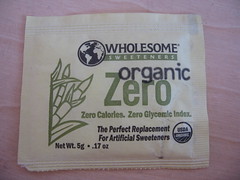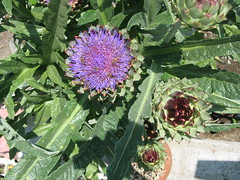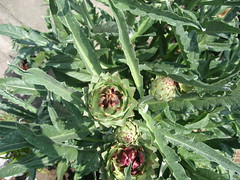
Artificial sweeteners are often bad news in terms of your health. Take aspartame, an artificial sweetener used in everything from Diet Coke to sugar-free gum. Marketed under the brand name NutraSweet, aspartame is manufactured and distributed by Monsanto, the multinational corporation that brought the world genetically modified seeds and Agent Orange. It’s been linked to cancer, brain damage, and bizarrely, is scientifically proven to cause compulsive over-eating disorders. Dieters beware of dieting products.
Erythritol doesn’t sound very whoesome or natural by name, but in fact it’s simply made from cane sugar. In the case of this new brand, Organic Zero, the sugar is organically grown.
Pure organic cane sugar is dissolved in water, and fermented with a USDA-approved fungus. This process is not dissimilar to making kombucha. Once the sugar solution has fermented for a while, it’s sterilized and filtered. This liquid is then heated to evaporate the water, leaving a white crystalline powder that looks like refined white cane sugar. You get about 1lb erythritol for every 2lbs of sugar used to produce it.
While organic food at its best is all about minimally-processed whole foods, I can see there’s a place for Organic Zero in some people’s lives. If you love coffee and hot tea with sugar, but need to cut back on the amount of sugar you eat, you should consider using Organic Zero on the way to cutting back your sugar usage. It doesn’t have any of the benefits of a good quality honey in terms of enzymes, but it has a zero glycemic index, which means it doesn’t cause any highs or lows in blood sugar levels. Essential news for diabetics.
Erithrytol isn’t a new ingredient, and as such doesn’t need to be treated with the suspicion new and novel untested ingredients often deserve. We’ve been eating erithrytol in mushrooms and cheeses for centuries. It has 0.2 calories per gram (which is pretty much the same as 0 calories), and actually helps prevent tooth decay as the bugs in your mouth can’t eat it.
It’s about 70% as sweet as sugar, so you’ll need to use a little more than usual to get the same effect as sugar. It also has a slightly strange cooling taste on the tongue, a bit like mint. While this is extremely subtle in coffee and tea, it makes it less desirable as a sugar replacement for baking cakes. I suggest you try baking a small batch of a familiar recipe to see if you’re happy with the results before baking a fancy cake.






